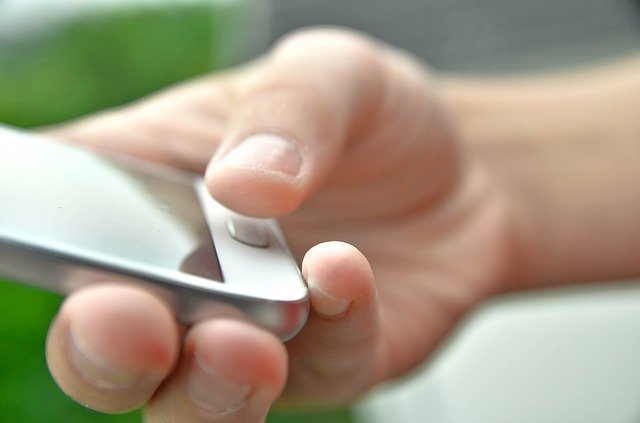HEAP is a "toolbox" to share and reuse knowledge
HEAP will provide a safe, efficient, ethical, reproducible, and sustainable data management system built on previous EU investments such as the Horizon 2020 projects B3Africa, RD-Connect, and FP7 BiobankCloud. Its aim is to make pseudonymized data from large-scale population cohorts, including data on samples, from health registries, and from research, safely interoperable and reusable.
FAIR and open data principles
All data in the HEAP Information Commons will be Findable, Accessible, Interoperable and Re-usable (FAIR) and open to the broader research community and policy-makers. HEAP data will comply with national and European ethical and legal frameworks, such as the General Data Protection Regulation (GDPR, Regulation (EU) 2016/679).
Data cohort studies – insights into the links between lifestyle and health and disease
Data to populate the HEAP Information Commons will be sourced from large, population-based cohorts, national health registries, consumer receipts, and wearable sensors. These data, once processed by HEAP, will provide new insights into lifestyle, health and disease history, health-care costs, and mortality.
500 000 women |
|---|
The Swedish cervical screening cohort study will evaluate internal exposome factors, such as viruses and bacteria, through analysis of cervical cells. Sweden has pioneered the use of biobank and health registry data in cervical cancer prevention. Its National Clinical Cytology Biobank runs a cervical screening programme for all women aged 23-70 years to detect and remove lesions that could develop into cervical cancer. The biobank will provide samples of healthy tissue, lesions, and cancer, and analyse specimens to identify risk factors for cancer.
HEAP’s role: HEAP will carry out metagenomic and epigenomic analysis on agnostic samples from about 1 million cervical screenings. HEAP will then link the results of these screenings to health registries containing interoperable data on the lifestyle, socioeconomic status, health, health-care costs, diseases and deaths of the Swedish population.
Lead partner: Karolinska Institutet
![]() 1 million women
1 million women ![]() 2 million pregnancies
2 million pregnancies
The nationwide Finnish Maternity Cohort is an internationally unique cohort. This study has collected biospecimens and registry data from registered pregnancies in Finland since 1983. The data include clinical information from maternity care, data on exposure during fetal life, registry-derived data and biospecimen research data.
HEAP’s role: HEAP will process cohort data to gain insights into how the exposome affects the health of mothers and babies, and produce actionable knowledge for policy-makers aiming to promote healthy childbearing. HEAP will make this data resource easily accessible to researchers.
Lead partner: Tampere University Hospital (TAUH)
![]() 100 pregnant women
100 pregnant women
The wearable data collection study uses innovative exposure sensors to monitor the effects of the exposome on 100 women during their pregnancies, with participants recruited from the nationwide Finnish Maternity Cohort. The wearable sensors collect airborne particles and toxic substances, and capture virus particles, bacteria, fungal spores, animal debris, and plant pollens, to investigate how the exposome influences the health of mothers and babies.
The study will be led by Professor Michael Snyder, an associated researcher at Karolinska Institutet who has undertaken pioneering work on the design and development of integrated wearable personal exposome monitoring systems. The wearable data collection project is as an exemplar study, and expands scientific understanding of personal exposome profiling and agnostic identification of environmental risk factors.
HEAP’s role: HEAP enables the entire process: device manufacturing, recruitment of participants, data acquisition, including data streaming from Internet of Things devices and mobile phones, metabolomic analysis of data, and sharing of results.
Lead partner: Karolinska Institutet
![]() 80 000 participants (adolescent boys and girls)
80 000 participants (adolescent boys and girls)
The Finnish community randomized human papillomavirus (HPV) vaccination trial is the largest of its kind in the world, and consists of registry data and biospecimens, including samples of oral gargles and cervical cells from
80 000 adolescents, collected over a 12-year period in four consecutive phases.
The HPV vaccination cohort study aims to understand the long-term impact of health interventions, by establishing a randomized, stratified intervention cohort. This project will provide data for microbiomic, epidemiological and impact analyses (including serological and nucleic acid samples) and improve understanding of risk factors for cancer and other diseases.
HEAP’s role: HEAP will transform the biospecimens and registry data into an open access resource for exposome research.
Lead partner: Tampere University Hospital (TAUH)
The main aim of the HEAP Lifestyle cohort within the TirolGESUND study is to investigate dynamics in DNA methylation risk signatures associated with ageing and women’s cancers in the presence of non-pharmacological disease-preventing interventions.
Specifically, the effect of two lifestyle changes, smoking cessation or interval fasting with/without ketogenic dietary supplementation, in addition to guided, targeted exercise,will be evaluated over an intervention period of 6 months.
Several biological samples that may act as surrogate samples for tissues at risk of (age-related) disease will be collected at baseline and every two months for 6 months. Optionally, biological samples will be collected at 12 and 18 months after initiation of the intervention.
The results of the study in the HEAP Lifestyle cohort will inform future preventive intervention studies.



